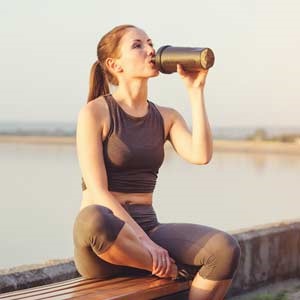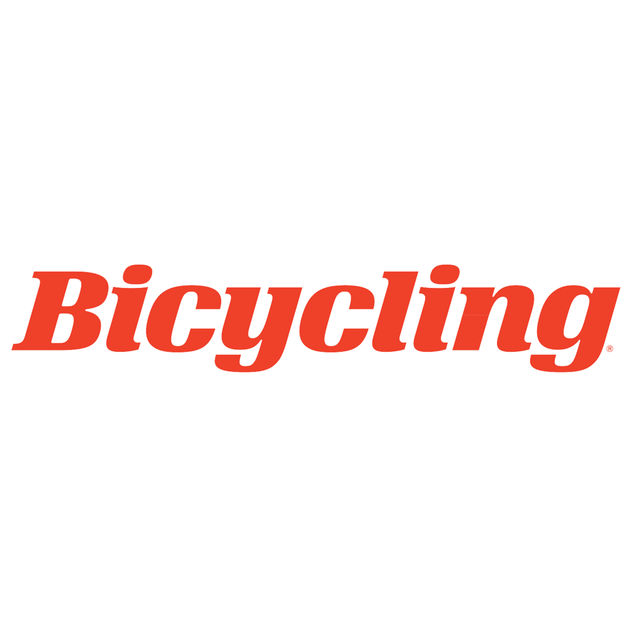
Protein doesn’t directly fuel your workouts, but it’s a vital part of every athlete’s diet.
You need it to help your body produce enzymes and hormones, expedite healing, support your immune system and provide your body with the building blocks for new cells.
As an athlete, you’ll need to consume more protein than your non-athlete friends.
“When looking at the increased needs of the athletic population, it is for recovery, because protein is not an efficient fuel source,” said Stevie Lyn Smith, a registered dietician and seven-time Iron Man finisher.
The differences in protein needs between men and women are not fully understood by researchers. But typically, women need to consume less protein than men because of their smaller size.
“Protein needs are based on grams-per-kilogram of body weight for both men and women,” said Smith.
Some studies have suggested that women’s protein needs may change over the course of the menstrual cycle, but researchers have just begun to scratch the surface of women’s specific nutrition needs.
Of course, your needs will depend on what kind of training you do.
“Protein turnover will be affected differently in a strength athlete versus an endurance cyclist,” said Dina Griffin, a certified sports dietitian.
Your predominant muscle fibre type, whether it’s fast, medium or slow twitch, is also a determinant in your protein needs.
“Athletes’ bodies need extra protein to help in muscle repair, growth, and strengthening,” said Smith. Here are four signs that you might not be getting enough protein to support your training.
1. You’re frequently hungry
Protein deficiency in athletes is often connected with poor dietary choices or disordered eating.
“With how the Western diet has developed with access to plenty of good sources of protein, it’s very unlikely you see someone deficient in protein,” said Smith.
Good protein sources for athletes include eggs or egg whites, lean meats such as chicken and fish, whey or casein powders, or plain yogurt.
“Animal sources of protein are going to provide the best bang for the buck for athletes,” said Griffin. A meal with sufficient protein should make you feel full.
“This satiating effect is due to a multitude of factors, such as amino acid and hormone response and oral perception cues,” said Smith. If your meals leave you feeling hungry, you might need more protein in your diet.
According to Griffin, feeling hungry every one to two hours might be a sign that you should add protein to your diet.
2. You experience energy lulls
A heavy training schedule combined with work or family life can wear you down. You may feel tired during the day, and it can be hard to isolate exactly why. The answer might be not enough protein.
“Having energy lulls, which can feel like fatigue or sluggishness during the day is one subjective sign,” said Griffin.
In addition to its role in recovery, protein helps stabilise blood sugars. No doubt you’ve heard the term “hangry”, which refers to that uncomfortable combination of hungry, tired, and cranky.
“When our blood sugars get too low, one of the results is hunger,” said Smith. “In turn, that often leads to overeating, which can cause our bodies to store excess fat.”
If you feel like you’re constantly swinging between extreme hunger and overeating, adding protein to your diet might help mellow things out.
3. You’re struggling to recover from workouts
If you’re following a training plan, you should have recovery days – and the occasional recovery week – built into your schedule. Recovery days might mean stretching followed by an easy spin around flat roads or another form of active recovery, such as walking.
Whatever form it takes, you should feel refreshed after a recovery day.
When your recovery days just aren’t cutting it, you might need additional protein in your diet.
“Protein intake is needed as part of a recovery nutrition protocol to help with restoration and repair of muscle tissue,” said Griffin.
Consuming protein within two hours after exercise helps ensure that your body has the resources it needs to repair muscles damaged or stressed by your training efforts.
“For endurance athletes, I encourage them to get 4:1 carbohydrates to protein,” said Smith. She recommends grabbing a recovery drink within 30 minutes of finishing your workout session.
4. You’re unable to build muscle
For many cyclists, building muscle is not necessarily their first priority. Instead, there’s a premium placed on being as lean as possible. At the same time, you still need to build muscle to ride well.
Not only does heavy training break down muscle fibres, but also also you need to maintain healthy muscle tissue to produce that hill-crushing, sprint-winning wattage.
Protein is a significant source of amino acids, which provide the ingredients for muscle growth. There are more than 50 amino acids found in nature and of these, nine are essential to the human body.
“Amino acids are the building blocks of the body,” said Smith. The body can extract amino acids from animal proteins and some forms of plant protein, such as soy.
“Vegetarian athletes need to be more careful when planning protein intake because plant sources of protein do not provide the same amino acid levels,” said Griffin.
This article was originally featured onwww.bicycling.co.za
Image credit: iStock



 Publications
Publications
 Partners
Partners










